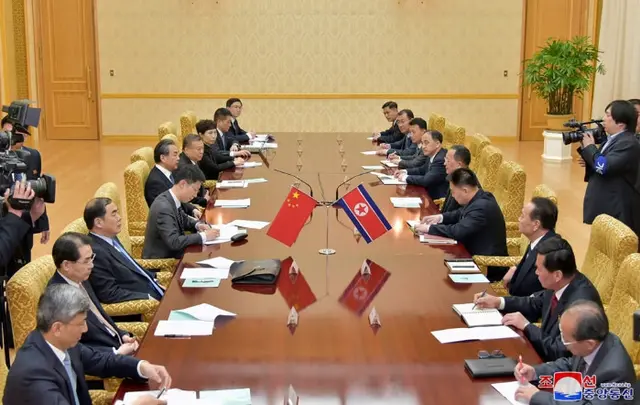What was meant to be a chance for Argentina to consolidate their idea of the game, to try different relationships on the field, to develop connectivity and strengthen the identity they have been seeking, ended in a historic defeat, described in turns as a suicide and a nightmare, compared to boxing for the metaphorical punches involved and tennis for the scoreline.
A 6-1 hammering by Spain left the 27 Argentinians who had been called up to test their ability to blend with Lionel Messi sad – desolate even – and their lyrical manager, Jorge Sampaoli, and the rest of the world none the wiser, given Messi did not play in Madrid or in the win against Italy four days earlier.
Last week in Manchester Argentina’s World Cup countdown kicked off with the squad under lockdown in City’s state-of-the-art training compound. Sampaoli’s long and detailed press conference took place with no more than a couple of sentences translated into English for the local press. Most residents were unaware the match was going on and a half-empty Etihad Stadium hosted the match against Italy.
Messi had decided not to play, enduring muscle fatigue, and joined the team late, spending Spanish father’s day with his family. He scored a goal during training that went viral. The match went ahead with a certain optimism – lining up without Messi could be an opportunity to try newer players and get a sense of how a Messi‑less Argentina could work. Willy Caballero, in goal, was man of the match and the veteran Éver Banega and West Ham United’s Manuel Lanzini each scored to secure a respectable 2-0 win.
Madrid was everything Manchester was not: the squad stayed in a hotel with press, business associates and family and friends milling about the lobby; the sun and the language were in marked contrast to the previous icy isolation and the locals were fully expectant of the big game that was coming.
It was a mistake to take on the match, of which by all accounts Sampaoli was not in favour. Argentina’s press blame the Argentinian Football Association, allegedly rebuilt after a profound fall from grace. The friendlies were organised by domestic rights‑holders in conjunction with a Miami-based sports and entertainment promoter; and government dignitaries used the opportunity to launch, at the Argentinian embassy, a joint bid for the 2030 World Cup with Uruguay and Paraguay, which boasted of support from the Spanish government but attracted no officials from the country itself.
At the 11th hour Messi announced again that he was not playing. It was probably the only wise decision of the saga. Argentina’s play in both friendlies was plagued by mistakes and Spain – “a country that has found its identity and its style in a way which we aspire to”, as Sampaoli had said – exposed every weakness that needs to be addressed before the tournament. As the veteran tactical analyst Román Iucht tweeted from Argentina: “More worrying than this defeat is the scarce amount of time left to work on the objective. And the confusion in the game plan, the ideas and interpreters.”
Other natives – those not stunned into melancholic silence – sought humour to ride the wave and posted Panini albums with Argentina’s page showing no stickers bar one: Messi.
Joking aside, the pain is palpable. Mostly for the players and the manager. It was only a friendly and Argentina have entered the World Cup shakily before and often performed better than when arriving as favourites. But the mood within the still uncertain squad will need a lot of boosting, and the Messi factor remains unresolved.
It is now beyond doubt that Messi’s power is absolute. Rumour is he commands with a look, and although much has been made of his camaraderie with the team – he went to see them at half-time, leading one to hope that whatever he said or did he never says or does again, because Argentina’s performance in the first half was nowhere near as dire as in the second – it has also been noted that he left his seat at the stadium before the end. In Manchester the acclaimed Argentinian football writer Adrián Maladesky mentioned that the main problem with Messi not playing was that the rest of the team get depressed by his absence.
Any analysis of formation and strategy or even assessment of individual players seems futile. Those who spent time on the pitch have not been mentioned as much as the experienced absentees – Sergio Agüero, Ángel Di María – and the target of all hatred is as ever the undervalued Gonzalo ‘Pipita’ Higuaín, who struggles to finish for Argentina at crucial moments and will have to bear that cross for the foreseeable future. The calm and thoughtful Javier Mascherano shows signs that he is reaching the end of the line with Argentina and paced the Madrid hotel in the early hours of the morning with a sadness reminiscent of the lost final of 2014.
Sampaoli has his work cut out. But whether Argentina’s football institutionally is up to the task appears as questionable as ever. The author Andres Burgo noted that what beggars belief “more than the 6-1 is that Argentina wants to host the 2030 World Cup, as stated on Mascherano’s captain armband, a country in which 47% of the urban surroundings has no water network and 77% lacks drain waste”.
It seems more than ever that Argentina is punching above its weight, and the toings and froings of ticket touts and impresarios,the venomous internal squabbles of pressmen and players, the milling about of the perennial same old riff-raff, suggests the much‑needed changes are a long way off.
Sampaoli and the players have the ability to stoop and build up again but they have little more than worn-out tools to start again with after this loss.
(The Guardian)
 简体中文
简体中文

